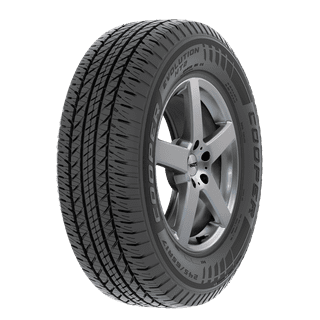Premium Tires Morris IL: Top Quality Products for All Makes and Models
Premium Tires Morris IL: Top Quality Products for All Makes and Models
Blog Article
Tire Service: The Effect of Weather
When it pertains to making certain optimal performance and safety and security when driving, comprehending the influence of weather on tire service is crucial. From scorching heat to icy roads, each weather component can substantially influence tire capability and overall driving experience. By diving into the results of differing weather problems on tires, vehicle drivers can gain valuable understandings that may improve their automobile's performance and durability. In this conversation, we will explore the elaborate partnership in between weather condition problems and tire service, clarifying the importance of weather-specific tire maintenance techniques and considerations.
Warmth and Tire Efficiency
When revealed to high temperature levels, tires experience changes in performance that can substantially affect vehicle safety and security and handling. The warm produced from prolonged driving or warm climate problems triggers the tire rubber to soften, leading to reduced tread life and boosted wear. As the rubber comes to be softer, the tire's hold on the roadway decreases, impacting braking distances and total grip. In severe cases, extreme warm can even trigger tire blowouts, presenting a serious safety risk to the lorry and its owners.
Moreover, heats can accelerate the process of tire aging, creating the rubber to wear away faster. This can cause splits, bulges, and various other kinds of damage that jeopardize the architectural stability of the tire. To alleviate the effects of heat on tire performance, drivers must consistently inspect their tire stress, rotate tires to guarantee even wear, and evaluate for any type of signs of damages. Additionally, utilizing tires particularly developed to hold up against heats can aid maintain ideal performance and security on the roadway.
Winter Effects
Cold climate problems can have a significant effect on tire performance and security. In cool weather, tires may also lose air stress a lot more swiftly, which can impact taking care of and gas efficiency.
To mitigate the results of winter on tires, it is important to on a regular basis inspect tire pressure and inflate them to the producer's suggested levels. Using winter months or all-season tires made for winter conditions can additionally boost traction and hold on icy or snowy roads - tires morris il. Proper tire maintenance, consisting of regular inspections for wear and damages, ends up being a lot more essential throughout colder months to ensure optimal performance and safety
Rainy Issues Impact
During stormy conditions, tire performance and safety and security can be significantly affected by the damp roadway surface areas and decreased visibility. The walk pattern of tires plays an essential function in keeping traction on damp roadways. Tires with worn-out treads are extra vulnerable to hydroplaning, where a layer of water constructs up between the road and the tire surface area, leading to loss of grip. To combat this, vehicle drivers should on a regular basis inspect their tires for sufficient tread deepness and think about buying tires especially designed for damp conditions.

Snow and Tire Safety
When driving in snowy conditions, having check my site the ideal tires can make hop over to these guys a considerable difference in safety and performance. Winter tires are made with unique rubber compounds and step patterns to provide better traction on snow and ice contrasted to all-season tires.
Along with making use of winter tires, it is essential to guarantee they are effectively pumped up. Winter can trigger tire pressure to go down, affecting traction and handling (tires morris il). Frequently examining and keeping the appropriate tire pressure is essential for ideal performance in snowy conditions

Weather-Related Tire Upkeep
When confronted with numerous climate condition, correct tire upkeep ends up being an important aspect of vehicle safety and performance. Weather-related tire upkeep includes a variety of practices targeted at ensuring optimum tire function and longevity in different weather condition circumstances. One vital aspect of weather-related tire maintenance is tire stress law. Rising and fall temperature levels can create tire pressure to differ, affecting traction and fuel efficiency. Routinely examining and readjusting tire pressure according to maker suggestions is essential for safe driving in altering weather. Additionally, tire tread deepness plays a considerable function in handling various climate components. Tires with sufficient walk depth give far better grip on wet or icy roads, decreasing the threat of hydroplaning or skidding. When walk wear reaches a specific depth is vital for keeping traction and stability in adverse weather condition, evaluating tire tread routinely and replacing tires. By prioritizing weather-related tire upkeep, chauffeurs can improve security, improve vehicle performance, and you could check here lengthen the life expectancy of their tires.
Conclusion
In verdict, weather condition problems have a significant impact on tire performance and safety and security (tires morris il). From heat impacting tire pressure and use to cold weather condition reducing grip, it is important to take into consideration the climate when preserving and utilizing tires.
In this discussion, we will explore the detailed partnership between climate problems and tire solution, losing light on the value of weather-specific tire maintenance methods and factors to consider.

Report this page